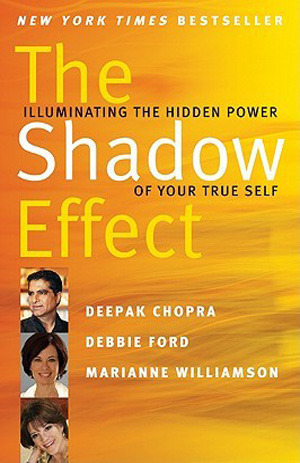
The Shadow Effect: Illuminating the Hidden Power of Your True Self Through Comprehensive and Practical Shadow Work
Deepak Chopra, Marianne Williamson, Debbie Ford
About the Author
Questions & Answers
The concept of the "shadow" in human experience refers to the hidden aspects of our personality, including our fears, desires, and instincts that we often repress or ignore. This shadow is a part of our true self, but it remains in the unconscious, influencing our behavior and decisions without our awareness.
The implications of understanding and working with the shadow are significant for personal growth and transformation. By acknowledging and integrating our shadow, we can achieve a more authentic and whole self. This process allows us to confront our fears, heal past wounds, and develop a deeper understanding of ourselves and others. It can lead to increased self-awareness, empathy, and the ability to make more conscious choices. Ultimately, embracing the shadow can lead to a more fulfilling and meaningful life, as it fosters personal growth and self-acceptance.
Deepak Chopra, Debbie Ford, and Marianne Williamson offer diverse perspectives on the nature and impact of the shadow:
-
Deepak Chopra views the shadow as a part of the human psyche, emphasizing its role in creating a holistic understanding of the self. He suggests that the shadow is a source of hidden power and that confronting it leads to personal transformation and wholeness.
-
Debbie Ford focuses on the shadow's influence on daily life, explaining how it affects our behaviors and choices. She emphasizes the importance of acknowledging and integrating the shadow's lessons to achieve personal growth and fulfillment.
-
Marianne Williamson explores the connection between the shadow and the soul, highlighting the struggle between love and fear. She encourages readers to embrace their entire selves, including the shadow, to find true freedom and happiness.
These perspectives contribute to a comprehensive understanding of the shadow by:
- Highlighting the Shadow's Complexity: They show that the shadow is not just a dark aspect but a complex part of the human experience that can lead to growth and self-awareness.
- Emphasizing Personal Responsibility: The authors encourage readers to take responsibility for their shadow, suggesting that it is a path to self-discovery and transformation.
- Offering Practical Solutions: They provide tools and strategies for understanding and integrating the shadow, making the concept more accessible and actionable.
The book argues that confronting and integrating the shadow, the hidden aspects of our true selves, leads to a more fulfilling and authentic life. It suggests that the shadow, often associated with negative traits, is actually a source of power and wisdom. By acknowledging and embracing our shadow, we can overcome self-imposed limitations and live more authentically.
Practical steps include:
- Self-reflection: Recognize and accept the existence of the shadow within oneself.
- Journaling: Write about thoughts, feelings, and behaviors that are difficult to confront.
- Therapy: Seek professional help to explore and understand the shadow.
- Mindfulness practices: Engage in meditation and mindfulness exercises to become more aware of one's thoughts and emotions.
- Community support: Share experiences with others to gain perspective and support.
- Personal growth: Engage in activities that promote self-awareness and personal development.
The collective shadow plays a significant role in shaping societal norms and behaviors. It encompasses the unacknowledged aspects of human nature, including biases, fears, and repressed desires, which collectively influence societal attitudes and actions. This shadow can manifest as discrimination, violence, and exclusionary practices.
Individuals can contribute to a more positive and inclusive society by addressing their own and others' shadows. By acknowledging and confronting their own unspoken fears and biases, individuals can become more empathetic and open-minded. This self-awareness can lead to more inclusive actions and decisions. Similarly, by encouraging others to confront their shadows, individuals can foster a culture of openness and understanding. This collective effort can lead to societal transformation, reducing discrimination and fostering a more harmonious and inclusive society.
The book challenges traditional views of good and evil by presenting the concept of the "shadow," a part of the human psyche that contains both positive and negative aspects. It argues that the traditional dualistic view of good versus evil is too simplistic and fails to account for the complexity of human nature. Instead, the book suggests an alternative framework that views the shadow as a necessary and integral part of the human psyche. It proposes that by acknowledging and integrating the shadow, individuals can achieve wholeness, authenticity, and a deeper understanding of themselves and others. This approach emphasizes the importance of self-awareness, acceptance, and transformation, rather than the pursuit of a simplistic moral dichotomy.
